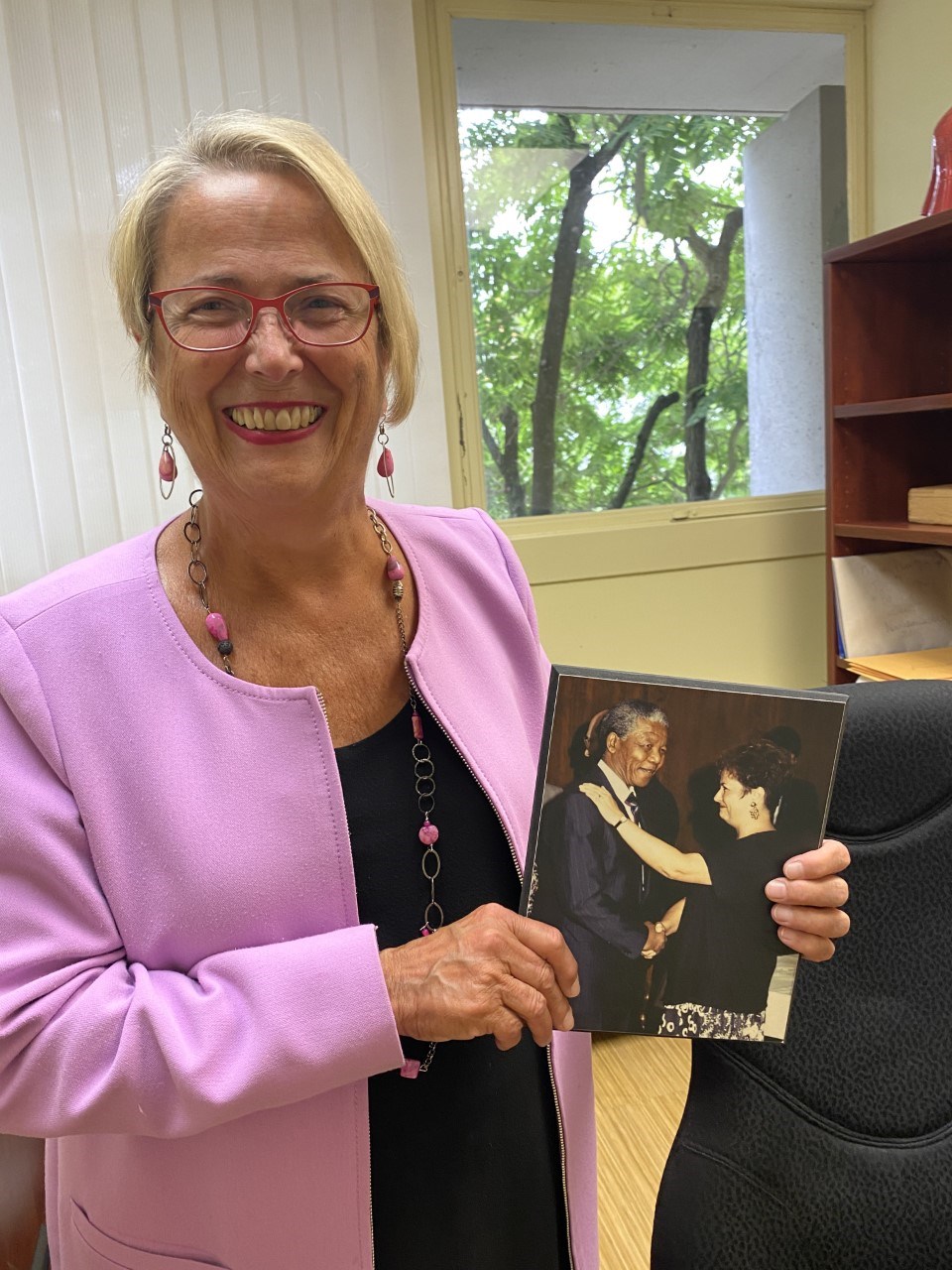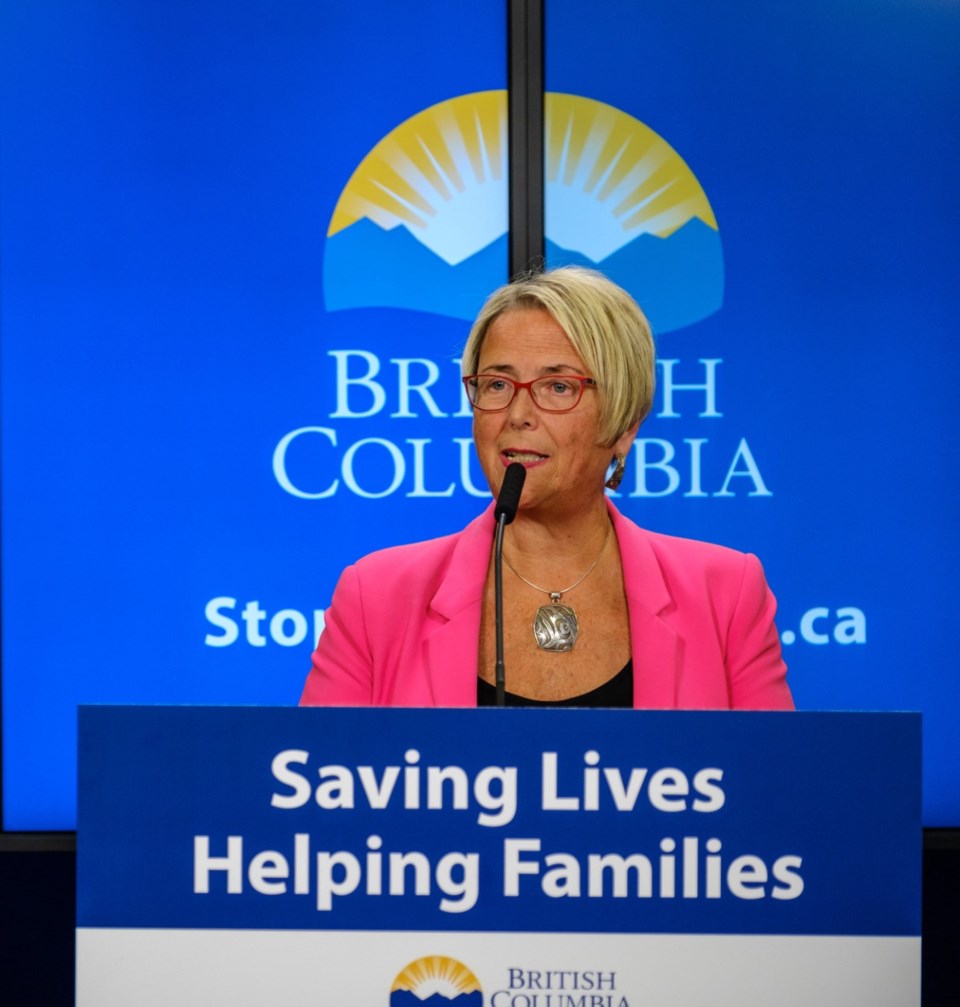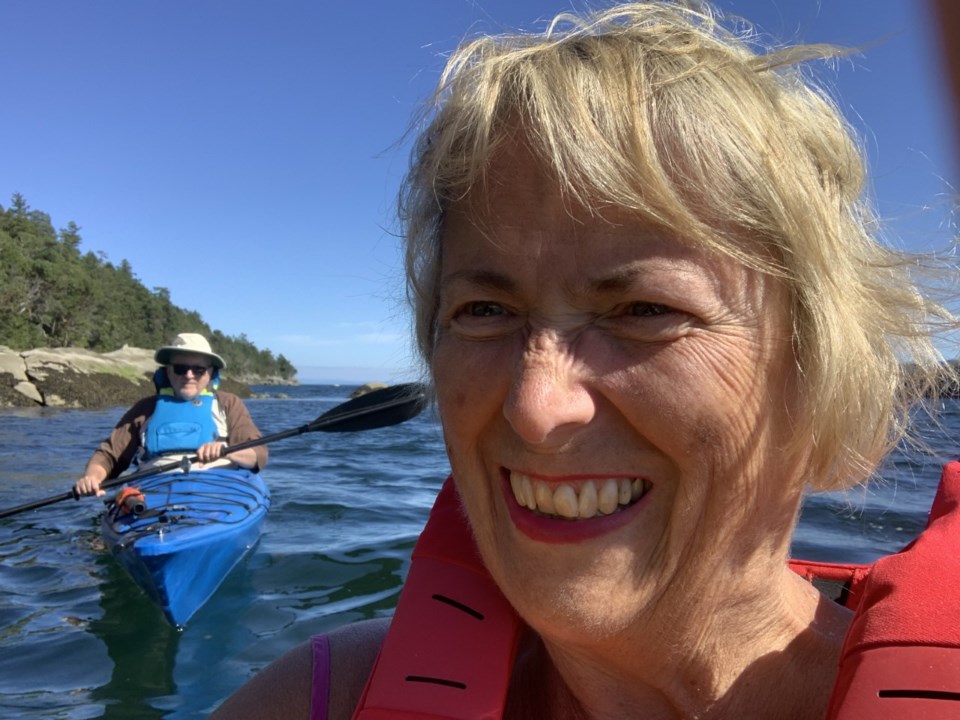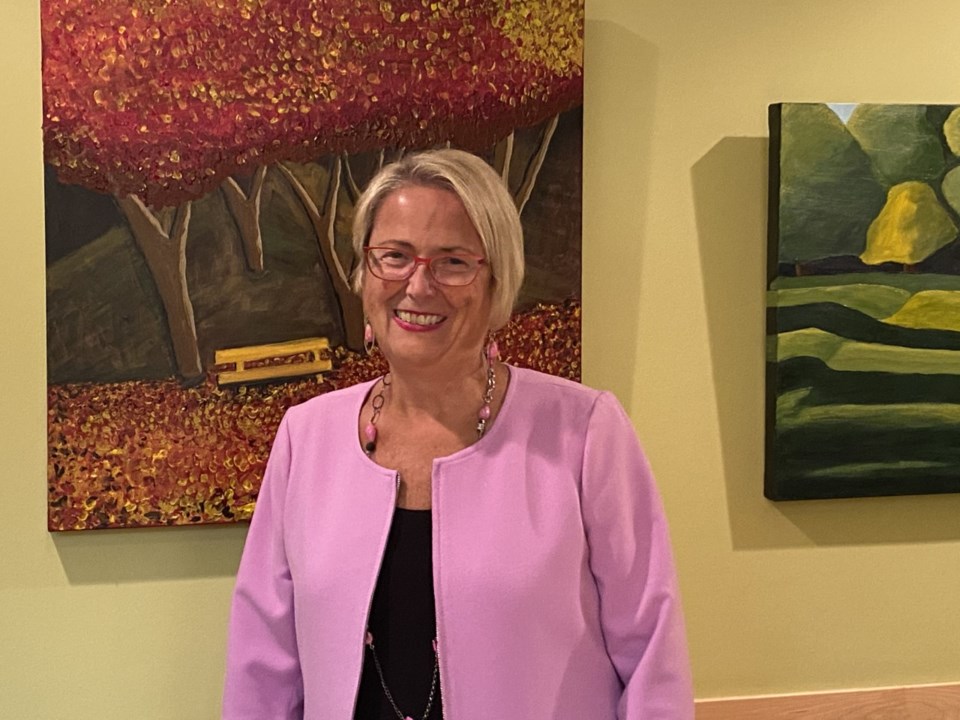When candidates hit the campaign trail for the next provincial election, New Westminster MLA Judy Darcy won’t be knocking on constituents’ doors – and not because the campaign will take place during a pandemic.
Darcy, who was elected as New Westminster’s MLA in 2013 and re-elected in 2017, won’t be seeking re-election during the next provincial election. She served as the B.C. NDP’s health critic during the party’s time in opposition, and she was appointed as British Columbia and Canada’s first-ever minister of mental health and addictions after the NDP formed government in July 2017.
“I love this community,” she said. “It’s the greatest honour of my life to be MLA for seven years and three of those to be minister of mental health and addictions. I wouldn’t trade it for anything in the world.”
Premier John Horgan hasn’t announced the date of the next provincial election, but he’s asked NDP MLAs whether they’ll be seeking re-election. He was a bit surprised by Darcy’s response.
“He said, ‘Jude, you have been going for 50 years strong, I just thought you’d always keep going,’” she said. “That was his reaction.”
Darcy said she will continue to work her butt off every second that she has left as New Westminster’s MLA and B.C.’s minister of mental health and addictions. While she’s been called a “machine” because of her work ethic, Darcy said her gut is telling her it’s time to retire from politics.
“It’s been a really, really intensive seven years, especially the last three years. I don’t want my energy to slow,” she said in an interview with the Record. “Would I be happy to do it for another couple of years? Absolutely. But when you commit, you commit for four years. I will be 75 in four years. I’m turning 71 in November, so I will be 75. I know I don’t have four more years in me.”

No Greater Honour
Prior to entering politics, Darcy served as national president of the Canadian Union of Public Employees, where she was the only woman to lead a national union for many years. She also worked as the secretary-business-manager for the Hospital Employees’ Union in B.C.
Darcy said it’s been an honour to serve a community as caring as New Westminster. She points to the way residents, community groups, businesses, faith organizations and others have rallied together in response to issues such as fires (such as a fire on Columbia Street that left businesses without space to operate and an apartment fire on Ash Street that left many without homes), the Syrian refugee crisis, the COVID-19 pandemic, and the posting of hate literature near a local church.
“To be able to represent a community like that for seven years?” she said. “There isn’t any honour greater than that.”
During her time in Victoria, Darcy said she’s proud of a variety of initiatives, including Improvements to seniors’ care, such as the hiring of 500 new care aides, construction of affordable housing to address homelessness, elimination of MSP premiums and major investments in child care (including a $20-milion investment in New West). She said she will never forget the day that four First Nations leaders were in the legislature when the province introduced the Declaration on the Rights of Indigenous Peoples Act.
Locally, highlights include ensuring the Pattullo Bridge is rebuilt (and doing some “arm-wrestling” with her Surrey colleagues to get a four-lane bridge rather than a six-lane crossing) and working with the school district and lobbying the then-Liberal government for funding for a replacement New Westminster Secondary School.
Darcy is also proud of her role in pressing for changes that may not have garnered big headlines, but are important in residents’ day-to-day lives, whether that’s advocating for much-needed bus services in neighbourhoods or helping someone navigate their way through the bureaucracy to get a much-needed wheelchair so they’re able to get around.
“It’s about quality of life,” she said. “You go to bat for them, call the right people. For most people it is pretty bewildering. I’ve had amazing constituency staff. They are the ones that do the bulk of that work. They let me know what they are doing. They let me know when they need me to jump in.”

Overdose Crisis
As minister of mental health and addictions, Darcy has immersed herself in efforts to combat the overdose crisis that is affecting families and communities across B.C.
“Let me say first, I wouldn’t rather have been given any other assignment. I mean that. People don’t believe me when I say that,” she said. “I was the first minster in B.C. and the only one in Canada, and that is still the case until this day.”
Darcy said her ministry has opened centres catering to the health and well-being of youth aged 12 to 24, invested in counselling and recovery programs across B.C. and implemented programs aimed at reducing stigma surrounding mental health and addictions. The province has taken steps such as increasing the number of overdose-prevention and supervised-consumption sites, increasing access to naloxone, and expanding treatment and recovery options.
Darcy said the number of deaths related to the overdose crisis started steadily going up in 2012, and a public health emergency was declared until 2016. After the NDP took office in 2017, she said the province began investing in a variety of initiatives.
“I give so much credit to people who do this work because it is such hard, hard work. But as a result of investments, massive investments, and all these people on the frontlines, the numbers dropped by 36%. Now that was still a long way to go, but at least we were heading in the right direction,” she said. “And then COVID hit. The drug supply, the fentanyl is sometimes 40 times higher in concentration than before. Fentanyl was already killing people.”
Since the pandemic began, B.C. has set several records for the number of illicit-drug overdoses.
“This touches me so deeply,” Darcy said of the overdose crisis. “It’s with me every moment of every day. It’s what keeps me awake at night, it really does.”
As long as she’s minister of mental health and addictions, Darcy said she will continue to press the federal government to decriminalize drugs. While decriminalization isn’t the “magic bullet” to solve the overdose crisis, she said it’s part of a response that includes prevention, treatment and recovery, and harm reduction.
“We can’t keep treating people as criminals. The big drug pushers? Absolutely. The people who import these drugs, the people who mix these poisons, the people who sell these poisons, the traffickers – there are no words to describe. I don’t use the word ‘evil’ very often, but it’s cruel and it’s evil. And they are killing people,” she said. “But people who are struggling with addiction, we can’t be judging them; we need to be giving them support. That’s why we can’t treat it as a moral issue, as a character issue or a criminal issue. That is why people use alone. It’s why they use alone and why they die – 80% of people are using alone.”

Moving On
Darcy’s retirement plans include spending more time with her husband of 44 years, Gary Caroline, a human rights lawyer. Other plans include cooking more meals, reading more books and pursuing pastimes like photography and kayaking.
Darcy said she’ll be staying in New West – “This is home. This is my community. I love it” – and contributing to the community in a yet-to-be-determined way.
“I never planned to become MLA. I didn’t spend my life thinking ‘I want to run for office.’ I spent my life wanting to make changes in my community, my country and the world. That’s what’s always driven me since I was 19 years old – thus the 51 years of activism. That continues. That fire doesn’t burn any less. I just don’t know what form it will take.”



